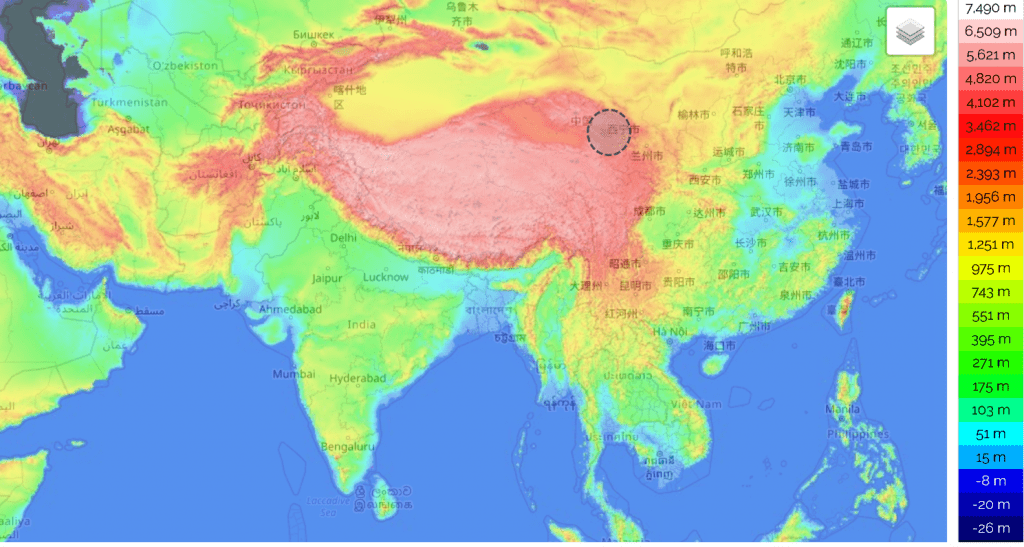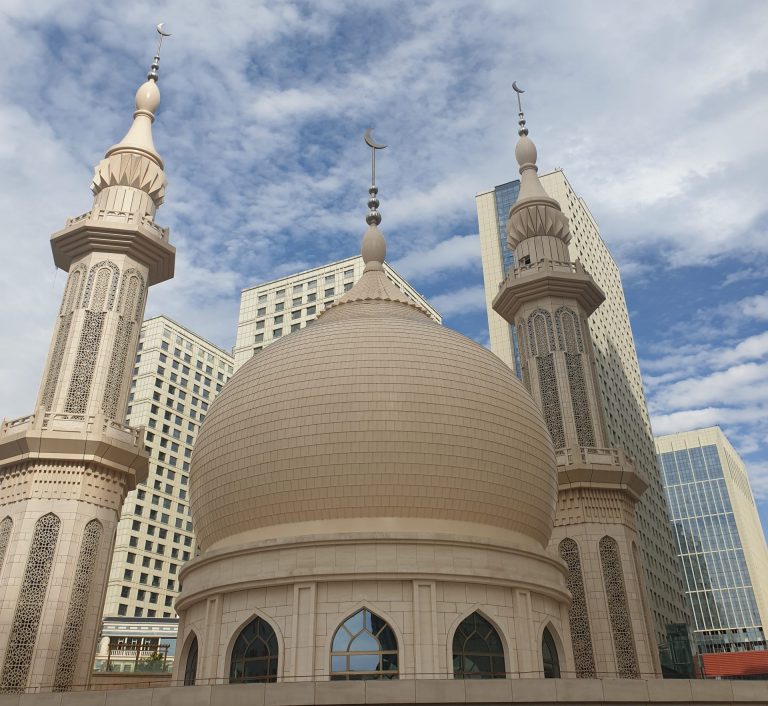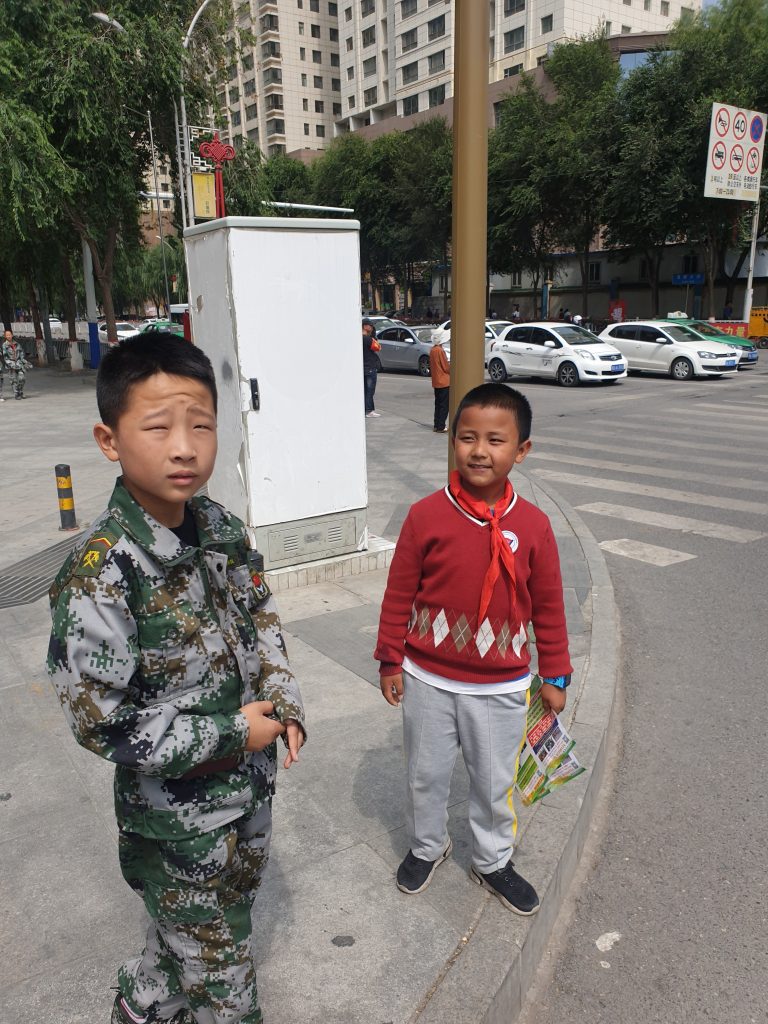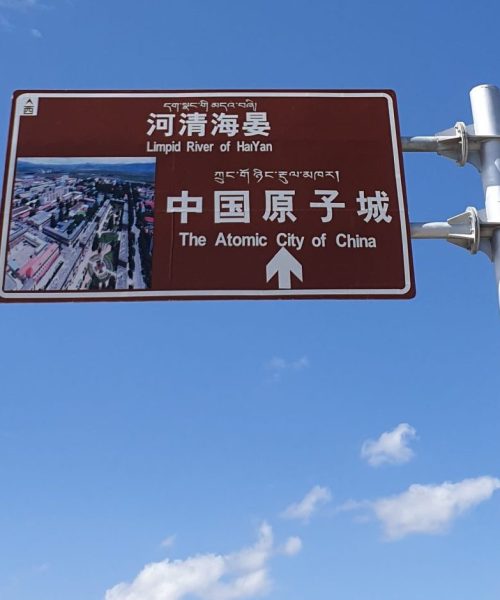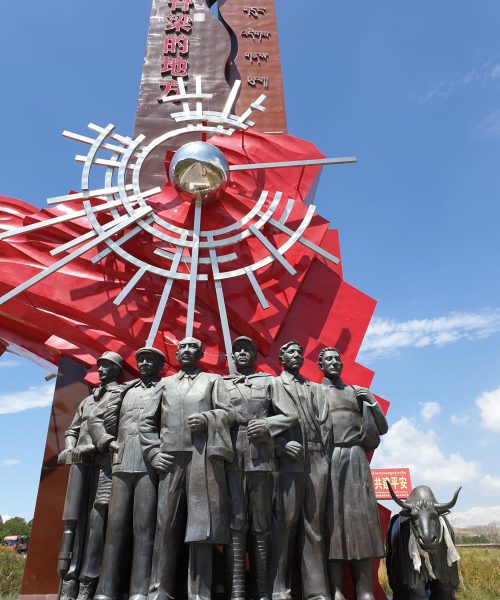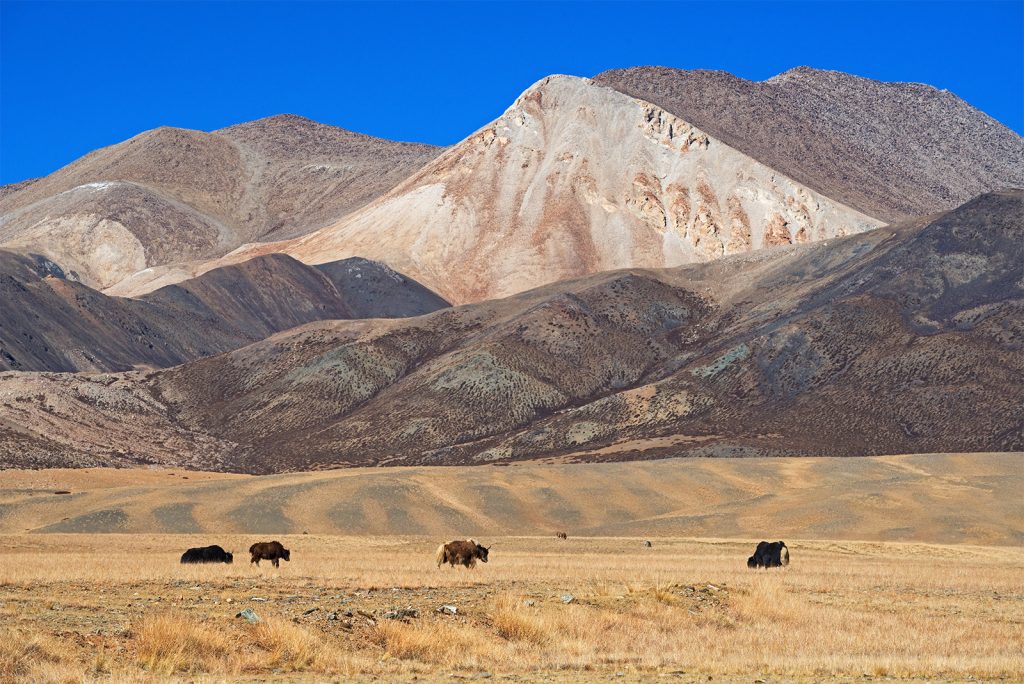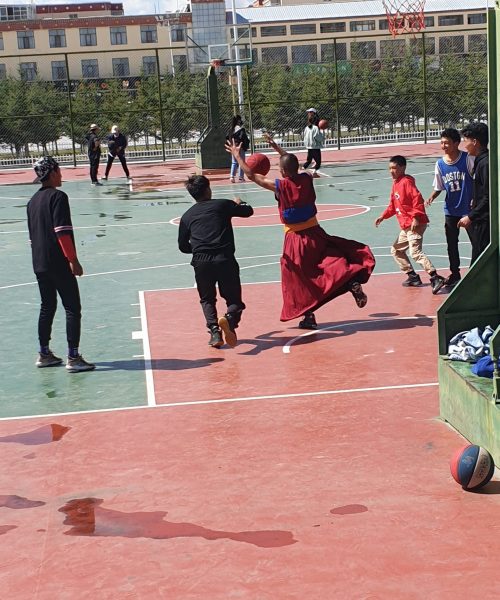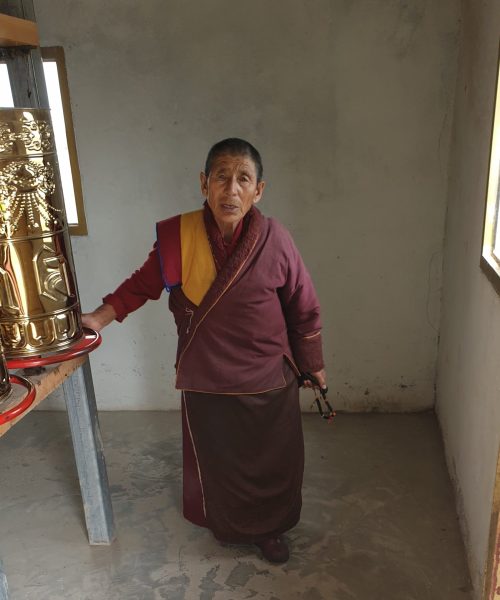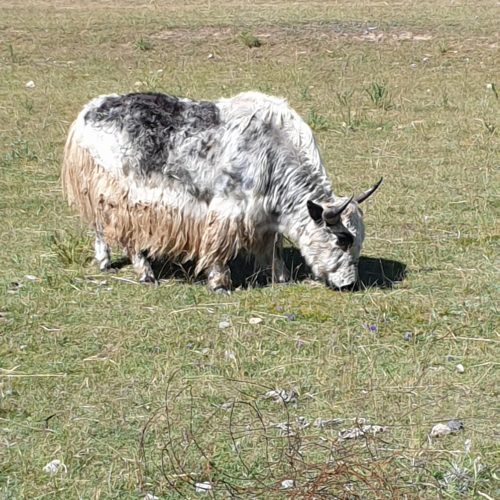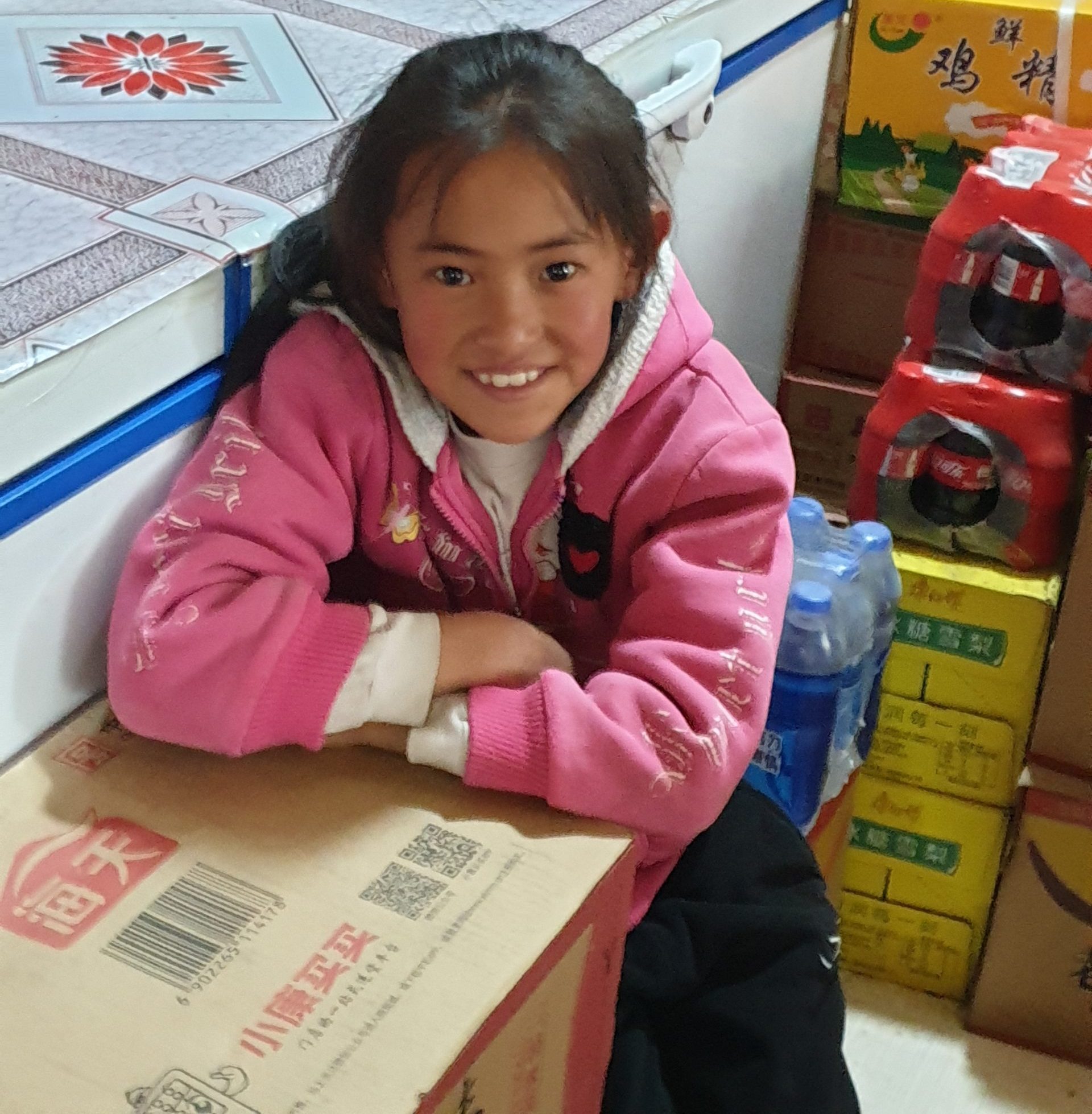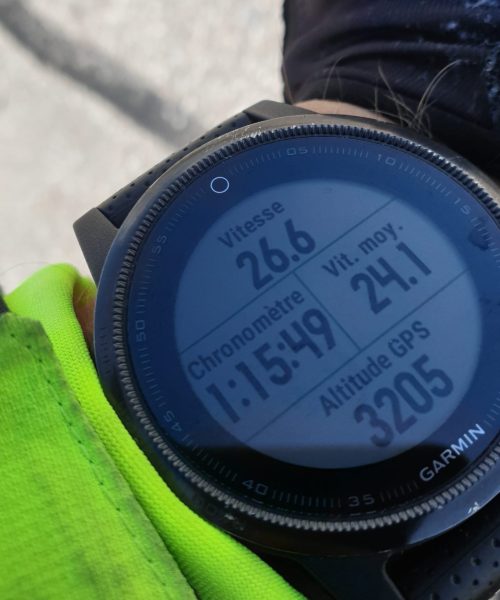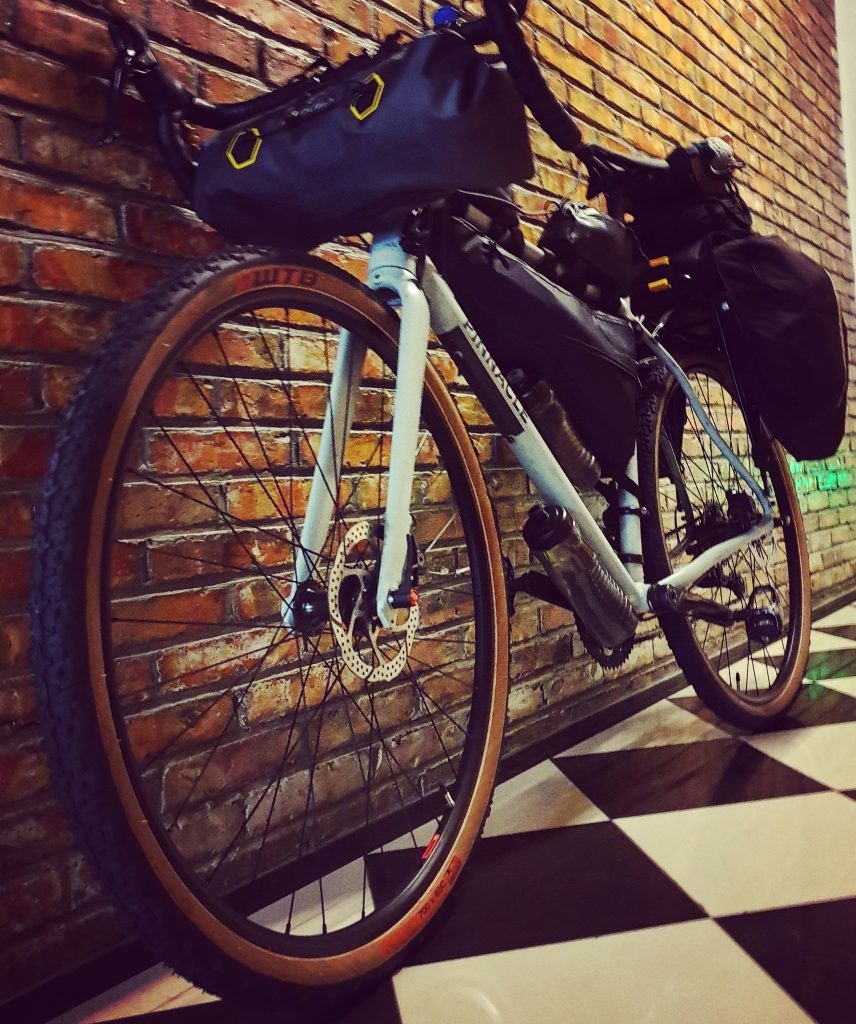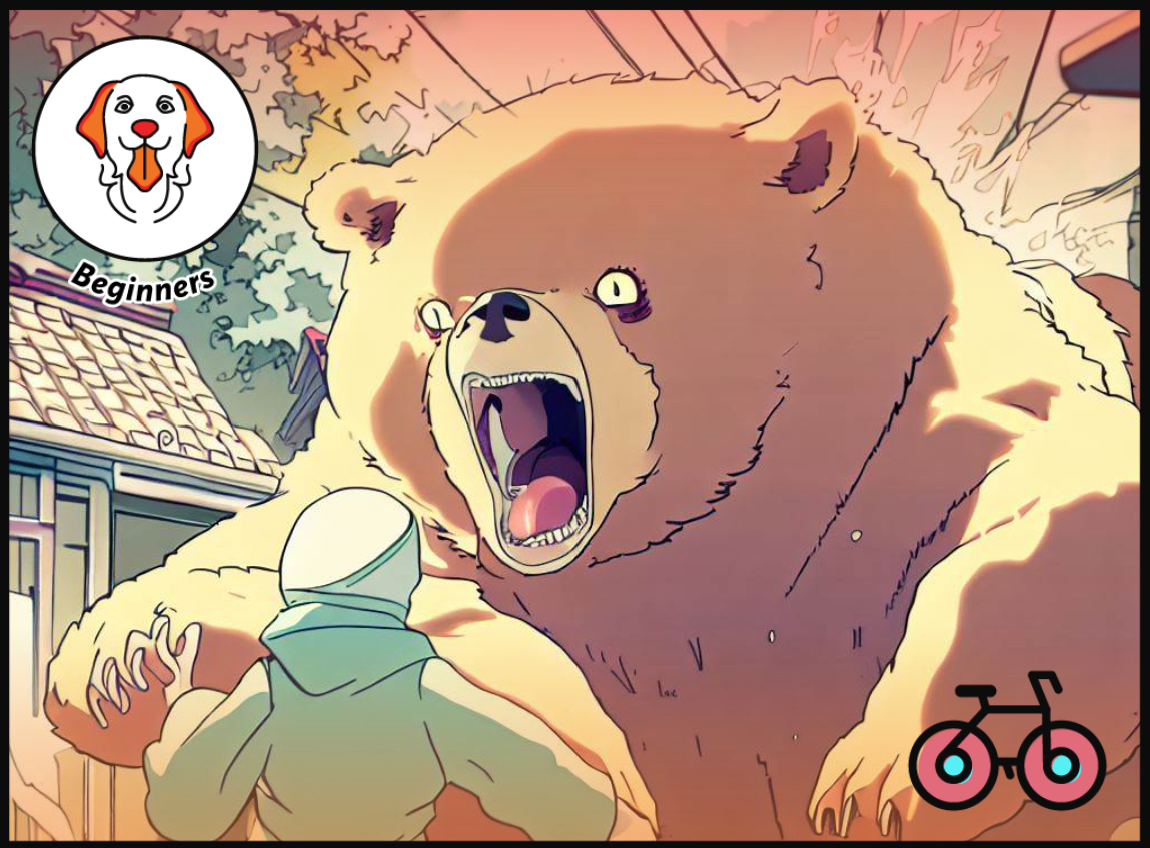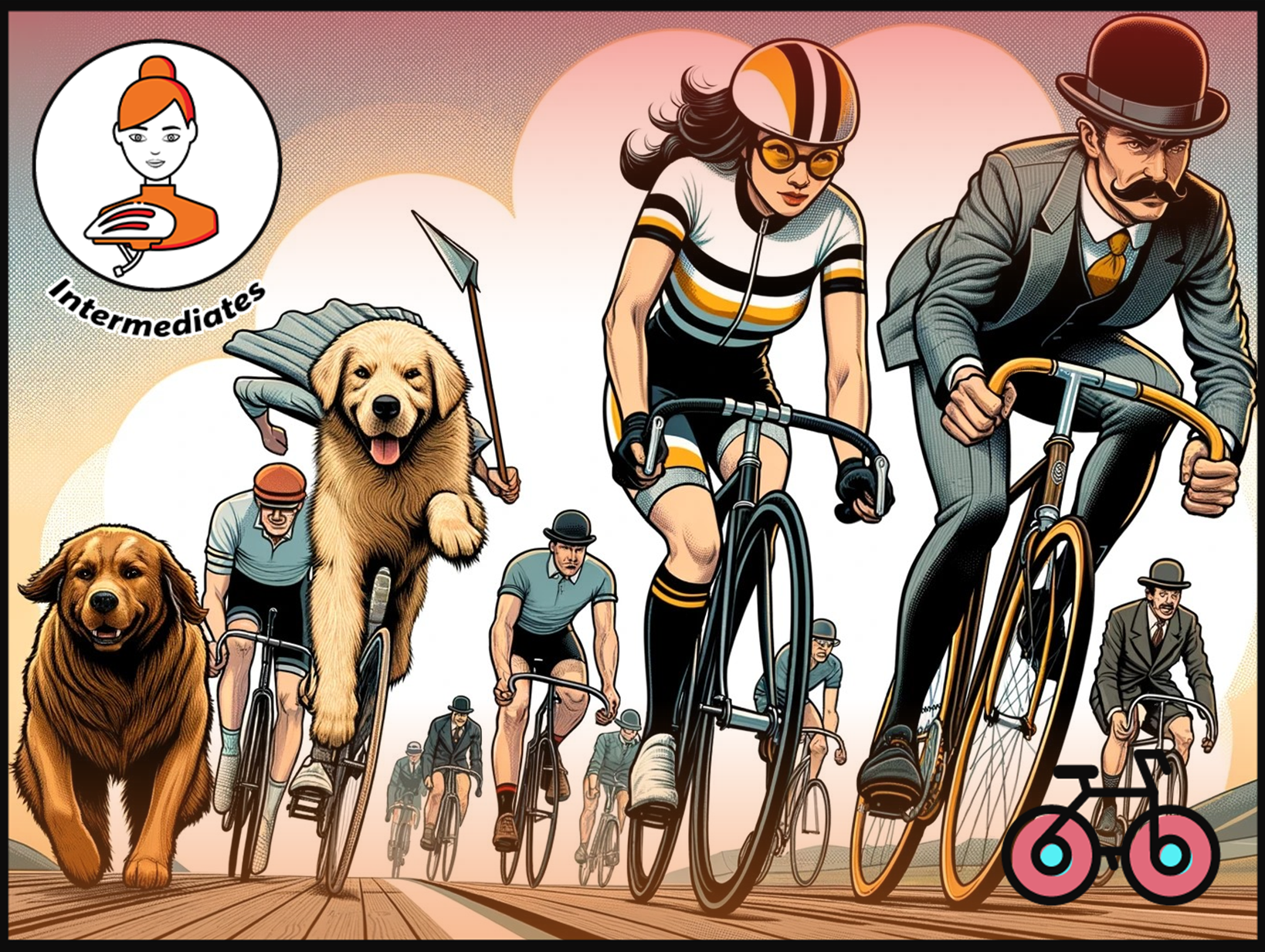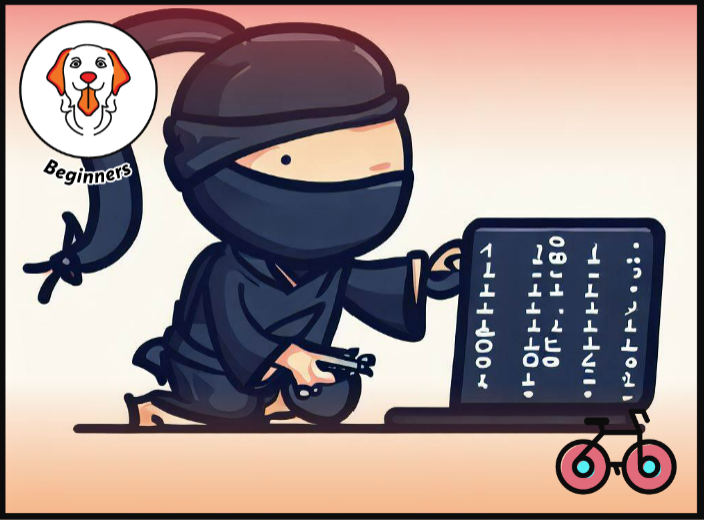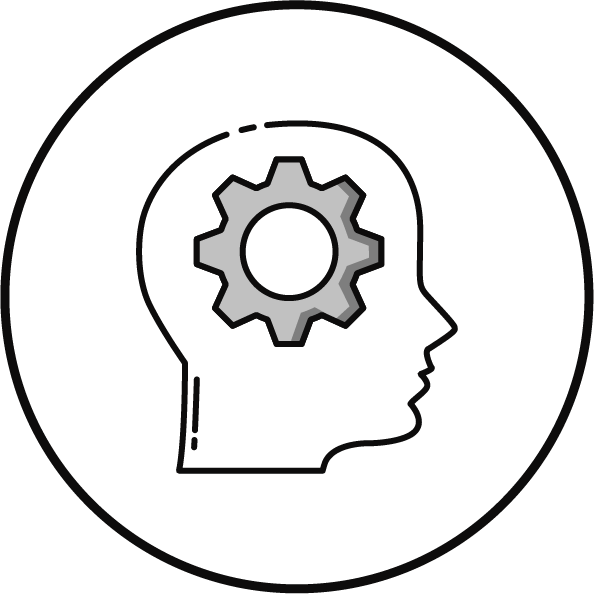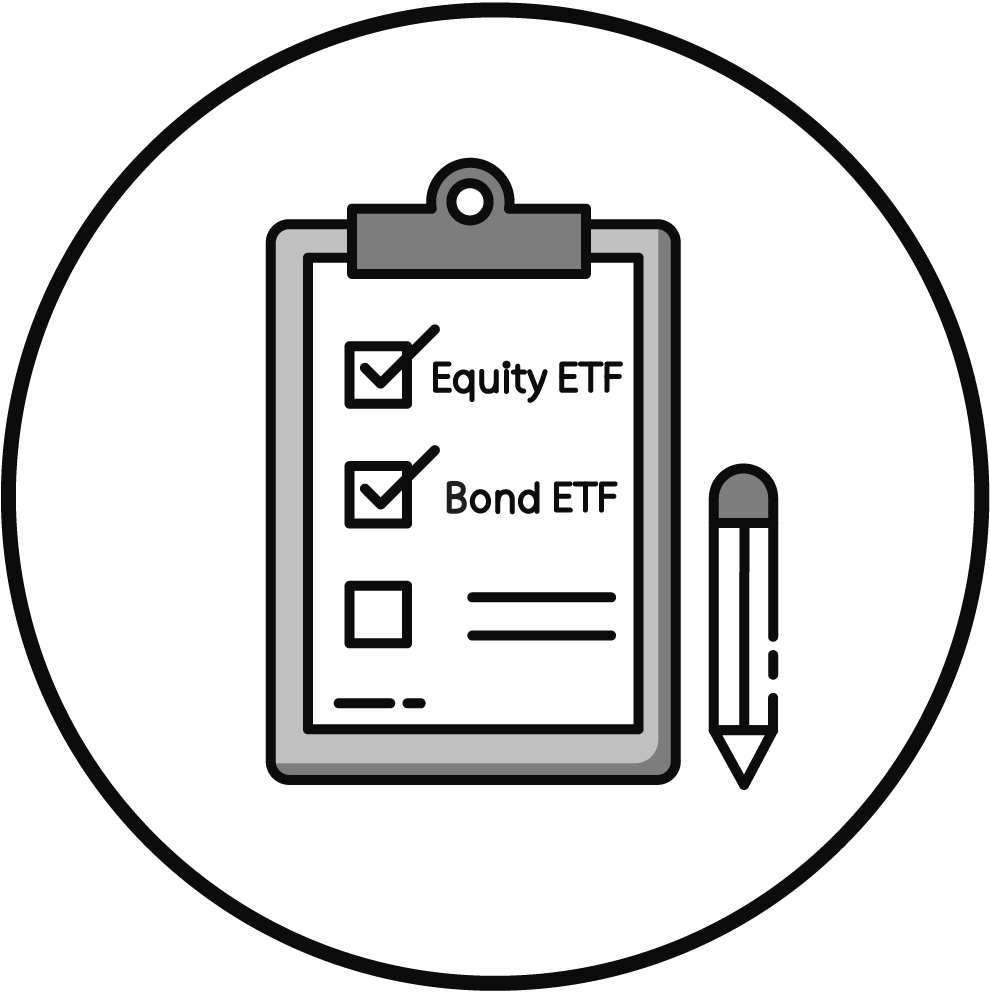Cycling Tibet – Spiritual, Ballistic, Magnificent.
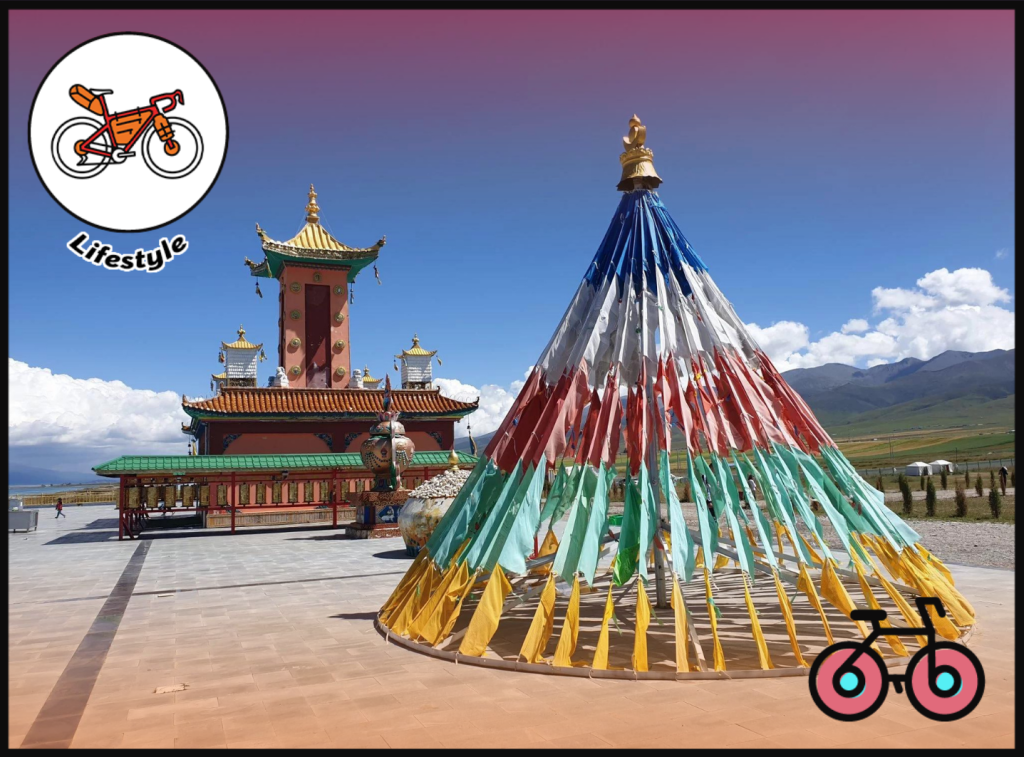
“What did you think of China?” is a question I got frequently asked. It’s complex. But a day from my life on the bike can give you some flavour.
The highlight of my trip to China is without any doubt the Qinghai Province. Logistically, China was also the most challenging country on a bike. Here is why.
SOME HIGHLIGHTS
- Cycle Above The Clouds – At a soaring 3,200m average altitude, Tibet offers spiritually elevating rides. Its largest lake hosts the highest cycling race in the world.
- Embrace Chinese Diversity – With 55 ethnicities, Chinese provinces are an incredible mix of people, and architectural blends. The Tibetan Plateau is inhabited by Buddhists, Genghis Khan’s Army’s descendents or Muslim Huis.
- Be Ready For A Different Ballgame – China has super-apps, uses face payments in Supermarkets and swimming pools but also builds roads at a speed, that our apps struggle to keep up with.
- Avoid Being Arrested – The challenge? Cycling solo in China, especially in regions with minorities, like Qinghai/Tibet, Inner Mongolia, or Xinjiang, is not exactly on the Government’s tourism promotion agenda. You will need to be a bit creative. Especially, when such regions also host extensive military and nuclear sites. The Post-Covid China you will visit will be different, but logistically, it will remain challenging.
Here is the full analysis
If I tell you my dream, you might forget it. If I act on my dream, perhaps you will remember it, but if I involve you, it becomes your dream too.
Tibetan Proverb
What does it mean to cycle TIBET?
Where The heck is Qinghai?
A rarely known Tibet
Qinghai is located in the North-Western part of China bordering the Tibetan Autonomous Region from the North and the Silk Road from the South.
It is home to one out of four Tibetans. The province has also the largest lake in China – Qinghai Lake. The tour around the lake is the highest cycling race in the World.
Once a year, the ride takes place at an average altitude of 3,200m (10,500 feet) above sea level. Other than this event, it remains largely unknown.
Tibet was the most rewarding part of all my cycling adventures, not only because of physical challenges.
Spiritual Tibet played a big role. But I quickly realized other aspects that make it a unique place.
Nuclear Facilities & Genghis Khan's Army Descendants
This region is the heartland of Nuclear China and a place with extensive minorities including Hui Muslims and Tu Mongols whose ancestors served in Genghis Khan’s army.
But China was also the most challenging country on a bike.
Thunderstorms at high altitudes combined with logistical challenges are not exactly the ideal mix.
The below observations relate mainly to the Tibetan Plateau while contrasting it a bit with other parts I have explored – the Gansu, Inner Mongolia, or Beijing.
Cycling at 3,200m altitude. On average.
Qinghai Lake and the Tibetan Plateau on a Topographic Map
How big is this plateau?
The Tibetan Plateau, also known as the Tibet-Qinghai plateau is the world’s highest and largest plateau above sea level.
It is roughly 5x the size of France.
While I have cycled thousands of kilometers in China, the Tibetan parts around Qinghai Lake (circled in a dark color on the map above) were my main objective.
Tibet always fascinated me, but exploring it on a bike was the absolute highlight of my cycling adventures.
How do you access Quinghai?
Xining - Qinghai's North-Eastern Gate
But before exploring Tibet one has to enter the province through its gate – Xining City.
During my cycling adventures, I kept on hearing negative opinions about travelling in China and its people.
This had the opposite effect on me of incentivizing me to explore the country and understand possible misconceptions.
A surreal Architectural Blend
Xining’s architecture blends hundreds of communist-style 20-floor tightly bundled together apartment blocks, skyscrapers, industrial facilities given its prominent location in the mountains and Islamic and Buddhist religious sites.
While the information on this is scarce, I had the feeling that the number of military schools was significant.
The city has a bit of a surreal feel to it but represents the heart of China and is far from how I would have pictured the country.
China's 55 Ethnicities
The Diverse faces of Xining
Most westerners generalize about 1.4 billion people based on a sample of Chinese tourists.
Han Chinese indeed represent the majority of the population. What I didn’t realise about China before exploring its remote provinces is its diversity.
For instance, China has over 55 different ethnicities. Xining is a perfect example of this diversity.
I was surprised to discover that Xining had a very large Muslim minority – the Huis. But also the Tus that are descendants of Mongols’ troops.
80% of religious people in Qinghai are Buddhists.
Its people are welcoming, if not curious what a foreigner on a bike does in this part of the world.
The prize? Tibet. The challenge? Avoid being arrested the first day.
Challenges await. Before I could reach the heartland, I had to tackle a few hurdles. Here is a description of a day that proved difficult.
leaving noise and dirt behind.
8 AM - Leaving Xining
Xining is located at an altitude of 2,300m.
It takes a day to leave the city and its conurbation behind.
Roughly 120 km and another 1,000m of climb.
Now I entered the Haibei prefecture which leads to the Tibetan heartland leaving all noises and dirt behind.
Some parts of China are indeed polluted. Especially the East coast. But larger cities are cleaner than in other Emerging Countries including India, I find.
Electric scooters are being rolled out at a much faster rate than in the West.
That’s why not relying on sounds was a new skill I had to learn.
But in rural areas pollution is not an issue.
a déjà vu? No, that was from a movie.
2 PM - Caravan of Black SUVs
I didn’t see many people during that day.
I stop a couple of times to make boil green tea with my mini stove.
Green tea helps in high altitudes.
On the horizon of a somewhat desertic landscape, I see a caravan of Government SUVs.
I think I have a déjà vu. No, that was a movie.
Fellow Cyclists have been arrested here
I realize that I probably crossed into wider military zones.
I had seen my fair share of those in Asia including Okinawa, Honshu, and Korea.
But this time it was different.
I see signs of ‘Atomic City of China’ on the horizon.
I guess I should have done more research before coming here. But would I have found much on the internet anyway?
I realise that the main road is highly monitored.
There were a couple of Chinese cyclists that took this road the same day – the AI may not be clever enough, yet, to recognize a Western face.
Or my face mask did its job.
Fellow Western Cyclists have been arrested in the very same area.
It must be a valid concern, as most of these areas could be interesting to foreign governments.
Nuclear Facilities at the gate of Tibetan heartland.
5 PM - Reaching cruising altitude of 3,200m
The atomic city of China
I reach Haibei province and its main town of Xihaizhen.
I’m at 3,200m – the average altitude that I will adapt to over the next weeks. Later, I would have to climb some passes above that level, just shy of 4,000 m (approx. 13,000 feet).
I resupply and then start looking for accommodation. I want to take it easy today after lots of climbing and look for a hotel.
Do you have authorisation to stay with us? I get asked.
I quickly realize it’s a no-go.
Only a few weeks later do I learn the full story.
Xihaizhen was built around the “211 Factory” which was eventually closed down in 1987.
It’s here that the Chinese researched the atomic and hydrogen bombs.
Many military zones remain.
Plan B - Crash on a tibetan bed
7 PM - sleep? Not anytime soon.
As an adventure cyclist, you usually have alternative options on where to sleep.
Plan A – Wild camping
Plan B – Knock on the door and stay with the locals
Plan C – Paid Accommodation
I usually follow the above order. But today is the reverse order.
I try Plan B.
I cycle another dozen of kilometers and look for a possible place.
Tibetans are very welcoming and show me a couch where I can crash for the night.
Let's call the police.
11 PM - We are so sorry but you can't stay here
The head of the family wakes me up at 11 pm.
He realized there is a strong likelihood that they will get an unplanned visit from military or local police.
I have to leave.
I revert to Plan A.
Rain starts shortly after I left. After the additional miles and being in complete foreign terrain with no visibility and private land around, I abandon this option for tonight.
I cycle back to the Xihazihen.
The hotel staff is surprised to see me again.
While cycling there I prepared for the only way out of this situation.
They are thinking along the same lines. Let’s call the police.
The police are as nervous about this situation as I am.
1 AM - A couple of cigarettes and a few calls
The Policemen are confused by my presence. I prepared a story to explain my presence. But the story doesn’t have legs.
The police are as nervous about this situation as I am.
Stressed, they smoke a few cigarettes and make a few calls.
They find a single hotel around the lake that has a license to host foreigners and book a cab to get me there. I explain that I will remain near that hotel.
To this day, I don’t know why they let me go, while others were not so lucky.
The truth is I was here to bikepack the region, and I think despite all the stress they were sympathetic to my endeavor.
Thank you for giving me this once-in-a-lifetime opportunity.
8 AM (D+1) - Real Tibet in front of my wheels
Qinghai landscapes - Yaks, Grasslands, Deserts, and Mountains
The above wasn’t the average day. It was rather on the tail end of the spectrum (a.k.a. a crazy day).
But that’s also what makes adventure cycling unpredictable and exciting.
The rest of my ride in Tibet was challenging but much more enjoyable than that night.
I wake up in a room with a view of the lake on one side and mountains at the back.
I’m about to embark on new adventures, leaving the cities and the military sites behind me.
The real Tibet was wide open in front of my wheels.
The tibet not talked about.
8 AM (D+1) - Real Tibet in front of my wheels
Pristine Qinghai Lake
Qinghai Lake is one of the world’s most pristine environments I cycled in with incredible landscapes, surrounded by Tibetan villages, religious sites, Yaks, mountains, deserts, and vast grasslands.
While the neighboring Tibetan Autonomous Region is quite a popular destination, Qinghai on the Tibetan Plateau remains widely unknown.
In fact, none of the people I spoke to in Beijing traveled there and I have seen no other western face during the few weeks that I cycled through part of this province.
I met a few chinese cyclists with all the freedom to roam in this land.
But I mainly observed and interacted with the locals.
You are now in Tibet and hardly anyone speaks Mandarin.
Chinese translating apps won't get you far
To my surprise, a couple of Tibetans I met were fluent in English.
But when a woman selling dried yak beef tells me that I may find a room in the nearby village she also gives a warning.
Your Chinese translating app won’t get you far in this land.
You are now in Tibet and hardly anyone speaks Mandarin.
Qinghai's Tibetans (and a Yak)
I will never forget the dozens of locals that helped me during my travels.
But also the thousands of prayer flags on a mountain near a Tibetan village and that peaceful sound of silence.
I will leave you here with the below video. While not of great quality, it speaks more than thousand of words.
Below are also a couple of words about logistics.
thousands of prayer flags.
The sound of silence
How I prepared for cycling china
Solo Bikepacking is not welcome.
Especially in regions with significant minorities
The Chinese Visa process is challenging on multiple fronts.
Most importantly, you most likely won’t be able to get a Chinese Visa outside your home country. Then, you ideally need to get an invitation.
If you are on a cycling adventure, long-term planning is not something you prioritize.
Cycling is about Freedom.
Not having constraints and being able to choose where to go, who to meet, where to sleep, and how many miles to do in any single day sets you free.
This certainly becomes more challenging in countries like China where tourists are supposed to be traveling in groups organized by local agencies.
Unfortunately, in regions with significant minorities, solo bikepacking is not exactly what the Government has in mind when thinking about promoting the country. This is particularly relevant in Qinghai/Tibet, Inner Mongolia, or Xinjiang.
The rest of China is a different story. Staying in Beijing doesn’t feel much different from other large Asian cities.
Get ready for Food Poisoning.
It's not about if you get a stomach bug but when
Food in China is diverse and overall quite tasty.
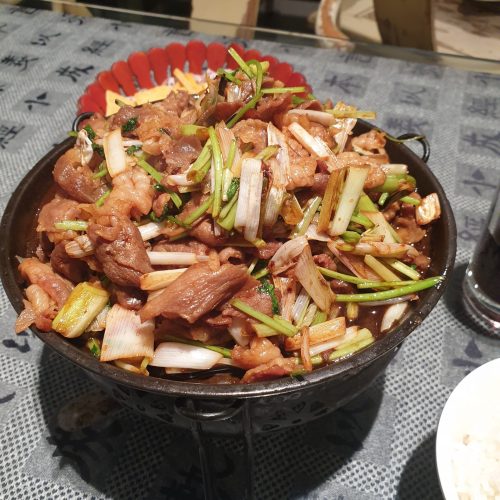
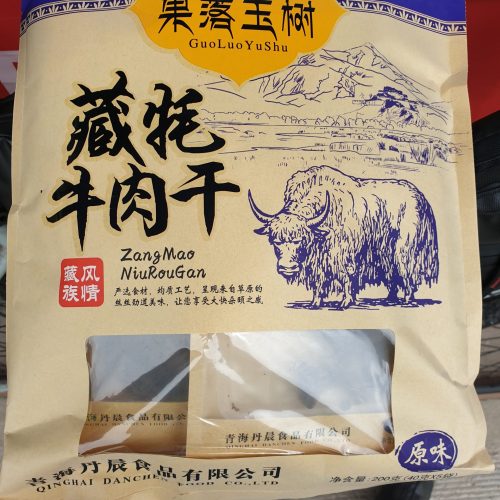
Food in China is diverse and overall quite tasty.
That said, managing different bacteria can be tricky.
It’s not about if you get a stomach bug but when.
Despite my defensive diet (mainly dry foods including Tibetan Yak dried beef) I still got sick after a couple of weeks.
A friend from a hostel in Beijing wouldn’t qualify this as sickness, though.
After having spent one year in China being sick apparently means landing in a hospital for 2 weeks and remembering those 2 weeks as the worst of your life. An extreme scenario.
With a bit of preparation, I managed to kill the bug within a day (Plan A aka probiotics did the trick although a Tibetan friend also provided me with a solid Plan B – a big black magic pill used in his tribe).
Tap water is not drinkable which can be tricky while traveling on a bike (purification tablets can be handy).
Know where to sleep
Wildcamping is a no-go
Wildcamping is the cheapest, most flexible and adventurous way of sleeping in adventure cycling.
In China, there are hardly any campgrounds and wild camping is tricky because in China land is private.
What it means in practical terms is that e.g. in Tibet the owner needs a special permit to host you and this can be strictly enforced.
Tibetans are frequently controlled by the Chinese police or military and are afraid of being caught hosting a foreigner.
In practical terms, most Chinese cyclists pitch their tent at night.
Hotels are restricted to foreigners
Hotels in remote areas are restricted to foreigners unless they hold a special permit.
For example, in another large Tibetan town that I cycled to later that month none of the hotels that I visited accepted foreigners.
The last two hotels that I tried wanted to call the police because a foreigner on a bike traveling solo in this region was considered very suspect.
On another occasion, a hotel wanted to host me illegally for 30 USD. The helpful staff wanted to hide me from the hotel management. The idea was for me to not leave the room so that I’m not seen by other staff and guests.
But they also realized that I have already enquired in other hotels in town hence probably attracted attention and alerted locals.
The deal was called off and I was back into the wild.
Did any apps help me?
Ban on Medieval Western Apps
Strava - the last Social Network not banned in China
The Great (information) Firewall of China
Unless you set up a VPN before entering China you won’t have access to the most commonly used apps and websites including Google, Facebook, Whatsapp, Wikipedia, Western news websites, etc.
The information barrier is called “the Great Firewall of China”.
Even if you do, from my experience the VPNs don’t solve the issue on local data plans i.e. 4G. Only some WiFi networks get around the issue but internet speed is very slow.
What we don’t quite realize in the West is that Big Tech from the Silicon Valley is not controlling the World.
China has its own ecosystem. Other Asian countries also have their own apps.
Chinese superapps are a different level
For example, Wechat is probably the World’s best Superapp and with no Western equivalent – it combines WhatsApp, Facebook, Skype, Amazon, Paypal, and more.
Yes, going back to Whatsapp seems like moving back a century.
Navigation apps are losing track of chinese growth
Of all my navigation apps, OSM AND+ is probably the most useful in China.
But there were instances when the satellites and software weren’t quick enough to plot the roads on the map.
At one point I got lost on a 4×4 highway. I was surprised to see no traffic when I realized it’s a brand new road, probably constructed in a few weeks since it wasn’t available on the map.
Pre-covid, China built 6,000 miles of new roads per year
Payments
Payment with QR Codes? Forget about it. China is rolling out face recognition in supermarkets.
China has a closed ecosystem for payments. While this is evolving with China’s Central Bank Digital Currency the situation is not ideal for foreigners.
China is also a cashless society. The country leapfrogged technologies including credit cards that were never used.
Homeless people accept payments with QR codes. The average grandma pays for groceries with her mobile phone.
To date, payments can be done through two mobile apps – Wechat and Alipay.
As of 2020, there were rumours that both WeChat and Alipay may provide temporary access to foreigners.
Currently, China is rolling out face recognition for payments in supermarkets instead of QR codes.
Your face is also how you unlock the locker in a swimming pool.
Buying Food with your Face
From Bankeronwheels.com
Get Wise The Most Relevant Independent Weekly Insights For Individual Investors In Europe & the UK
Liked the quality of our guides? There is more. Every week we release new guides, tools and compile the best insights from all corners of the web related to investing, early retirement & lifestyle along with exclusive articles, and way more. Probably the best newsletter for Individual Investors in Europe and the UK. Try it. Feel free to unsubscribe at any time.
🎁 In the first email, you can download a FREE comprehensive 2-page checklist to construct & monitor your portfolio and clean up your personal finances.
Be ready for a different ballgamE
The post-Covid China you will visit will probably be quite different to the one I experienced. Maybe even more restrictive. So be prepared before you get there. Cycling China is extremely exciting. But logistically, it is a different ballgame.
Good Luck and Keep’em* Rolling!
(* Wheels & Dividends)
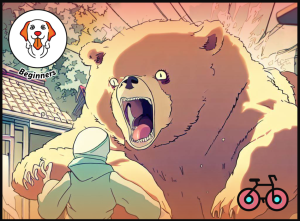
Surviving The Next Bear – Strategies To Profit From The Next Market Crash
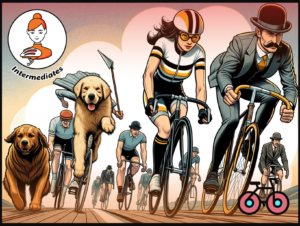
Weekend Reading – Asset Class Returns since 1970 & Trend Following Strategies
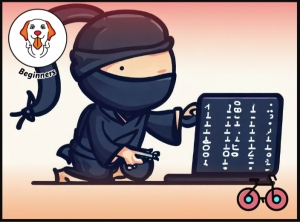
Cracking the Code: Decoding ETF Names & Discovering Tools To Find Them

Broker Review Methodology

iWeb Share Dealing Review – Great For Inactive Investors

AJBell Review – Leading Broker & Low-Fee SIPP Provider
HELP US
🙋 Wondering why finding honest Investing Guidance is so difficult? That’s because running an independent website like ours is very hard work. If You Found Value In Our Content And Wish To Support Our Mission To Help Others, Consider:
- 📞 setting up a coaching session
- ☕ Treating us to a coffee
- 🎁 Taking advantage of our affiliate links when setting up a broker account. This doesn’t increase your costs, and we often secure exclusive bonuses for our audience.
- ❤️ Exploring Other ways to support our growth, both financially and non-financially.
DISCLAIMER
All information found here, including any ideas, opinions, views, predictions expressed or implied herein, are for informational, entertainment or educational purposes only and do not constitute financial advice. Consider the appropriateness of the information having regard to your objectives, financial situation and needs, and seek professional advice where appropriate. Read our full terms and conditions.



